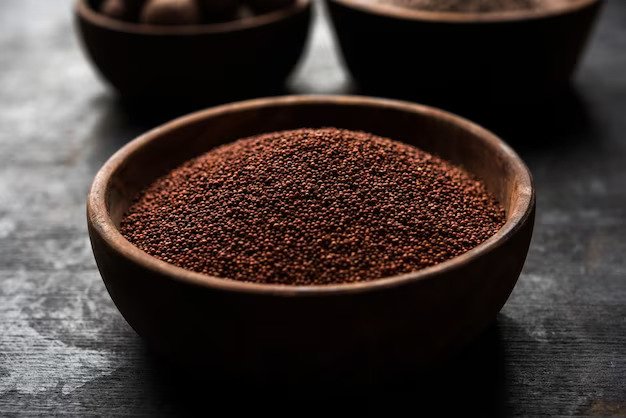Ragi, also known as finger millet, is a small grain that is native to India and Africa. It is a staple food in many parts of the world, and it is gaining popularity in other countries as well due to its many health benefits. Ragi is a good source of protein, fiber, and iron, and it has a number of potential health benefits. It is also gluten-free, making it a good choice for people with celiac disease or gluten sensitivity.
Health Benefits of Ragi
Ragi has been linked to a number of potential health benefits, including:
- Blood sugar control: Ragi is a good source of fiber, which can help to slow the absorption of sugar into the bloodstream. This may help to control blood sugar levels in people with diabetes.
- Weight management: Ragi is a filling food due to its high fiber content. This can help you feel full and satisfied, which may help you to eat less and control your weight.
- Digestive health: Ragi's fiber content can also promote regular bowel movements and improve overall digestive health.
- Bone health: Ragi is a good source of calcium, which is essential for bone health. It can help to prevent osteoporosis and other bone-related diseases.
- Heart health: Ragi's fiber content may help to lower cholesterol levels and reduce the risk of heart disease.
- Immune system function: Ragi is a good source of antioxidants, which can help to protect cells from damage and boost the immune system.
- Skin and hair health: Ragi's iron content can help to prevent anemia, which can lead to pale skin and hair loss.
Ragi is a versatile grain that can be used in a variety of ways. Here are some of the most common uses of ragi:
- Ragi flour: Ragi flour can be used to make a variety of breads, pancakes, and other baked goods.
- Ragi porridge: Ragi porridge is a nutritious and filling breakfast option.
- Ragi idlis: Ragi idlis are a popular South Indian dish made with fermented ragi batter.
- Ragi ladoo: Ragi ladoo is a sweet treat made with ragi flour, coconut, and jaggery.
- Ragi malt: Ragi malt is a non-alcoholic beverage made with ragi flour, water, and spices.
Ragi is a nutrient-dense grain, with a rich nutritional profile. Here is a breakdown of the nutrients in 100 grams of ragi:
- Calories: 347
- Protein: 7-8 grams
- Fiber: 18-22 grams
- Iron: 2.5-3.0 milligrams
- Calcium: 344 milligrams
- Magnesium: 121 milligrams
- Potassium: 439 milligrams
- Zinc: 4.7 milligrams
Overall, ragi is a nutritious and versatile grain that can be enjoyed as part of a healthy diet. It is a good source of protein, fiber, vitamins, and minerals, and it has a wide range of health benefits.










